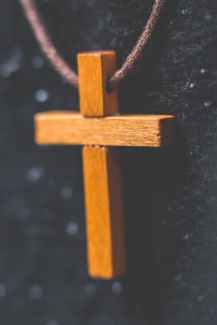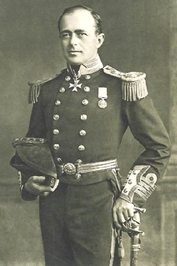Often times, late at night, I find myself reflecting. Reflecting on life, myself, all I have become, and all I have lost. Growing up, I didn’t have the most friends, but I could always count on my brain. Looking at where I am now in life, is a tremendous source of pride. I was the first in my family to attend post-secondary education, and the first physician as well. In many ways, to my family, I’m seen as a stepping stone for the Barron clan to exit from rural poverty.

That doesn’t mean there aren’t some regrets.
One thing I reflect on often, is faith. Growing up, the church was a huge part of my life. I ached to attend Sunday mass, and volunteered as an altar boy at the first chance I had. At my parish, Confirmation was typically reserved for 12 and 13 year old children. With special permission from the priest, I was allowed to be confirmed at age 8. And I came in top of my class. One of the highlights of this part of my life was when the priest at my church – Holy Trinity Parish, sharing a name with my elementary and high schools, Holy Trinity Elementary and High School – asked my mother and I to be the parish’s representatives at a special visit by the Archbishop of Canada, to the largest Catholic church in St. John’s, the Basilica (as a side note, on that day, I tripped on my way into the pew, and muttered, ‘Jesus, Mary, and Joseph!’ under my breath; my mother made sure I heard it later!).
As these things go, you get older, and you try your best, in many ways, to differentiate yourself from your family. Religion took a smaller role in my teenage life, although it remained important to me. Friends and school and manhood became my primary concerns.
Eventually, I attended post-secondary university at the Memorial University of Newfoundland, majoring in Biochemistry and then switching to Cell and Molecular Biology. That was followed by medical school, in Windsor, Ontario, and eventually residency in Toronto, where I am today.
When I moved to Windsor, a sense of community was lacking. What was this foreign place, so very different from my home? People avoided eye contact in the street, there were no friendly greetings or short conversations with the server at Tim Horton’s. And I missed that. So, I went to the nearest place I could think of, to help bring back that sense of community. I went to church.
A church service is a church service and in many ways the mass at Our Lady of Assumption in Windsor (the oldest church in Canada west of Montreal, now tragically shuttered and closed down), and I felt at home. Though the parishoners and the priest were different, the prayers remained the same, and in some ways I was at peace.
After my second service at Assumption Parish, I began to worry. Something wasn’t feeling right, and it took me a while to realize what it was. I stopped going to the church and looked elsewhere for community. If anyone out there has gone to medical school, you’ll know that my only option was the medical community, a sort of cult, comprised of medical students, residents, and doctors, and where the conversation invariably turns to the latest asthma medication or multiple sclerosis study.
Eventually, it came to me. I had lost faith.
Putting in to words what this meant to me is difficult. If any of you have faith, you know what I mean. God and Jesus were in many ways part of my own being, and the Catholic faith was for me the compass by which I navigated the world. Religion, to my perennially teased and tortured by my classmates in grade school soul, was for many years my anchor. And here I was, drifting off to sea.
I struggled with this for some time and eventually religion moved from my mind. I immersed myself deeper in medicine, and intentionally avoided any religious themed discussions, out of fear it would rip my being in two. To add some context, I’ve been in post-secondary education for eleven years at this point. Eleven years of fanatic education, of evolution, world religions, the big bang, science, and medicine. Eleven years of learning men (and women) are the masters of this world and that it is ours to discover. God, in fact, was only ever mentioned in discussions surrounding the unreasonableness of a Jehovah’s Witness refusing a blood donation. The problems caused by belief in Allah during Ramadan for kids with nutritional disorders. Never did that lens turn inwards, never was the question asked about our relationship with God.
That’s not to say I’m the only religious person that attended medical school, I know I wasn’t. I have friends and colleagues that were and continue to be active in the church. Me, I was Captain Scott, frozen in the Antarctic ice lost and without hope of rescue.

But like Captain Scott, there was hope. Although he died, Captain Scott is famous for the journals he comprised while he and his crew used pick axes to try and cut their boat free of his frozen water coffin. Of course this was a failed venture, and not until a subsequent Antarctic expedition during which his remains were discovered were his journal entries found and disseminated. And what was found was remarkable. These men, faced with their inevitable death, had been singing. They were in good spirits and they sat and played cards and ate breakfast. They joined together in prayer. They had faith, and the spirit lived on.
“God help us, we can’t keep up this pulling, that is certain. Amongst ourselves we are unendingly cheerful, but what each man feels in his heart I can only guess.”
― Scott’s Last Expedition: The Journals
I am not an Antarctic expeditionist, but like Captain Scott, my spirit lived on. The Holy Spirit? Maybe. I’m not going to call myself divine. Like an ember on the floor of a seemingly dead fire, I would soon realize my faith could again burn bright.
I was at a low point of my life in the third year of medical school, and I was wondering whether the choices I had made were truly the right ones. I felt like most of my friendships in Ontario were superficial, and that most of my friendships in Newfoundland were decaying. In many ways, I felt caught between two worlds and two provinces, not dissimilar to how I felt being caught between religion and medicine.
So naturally, I went to church.
And I went again.
And again.
And eventually the happiness I once had from sermon returned, and I found myself at peace. What had changed, I asked myself. I was still a physician-to-be, I still felt trapped in mainland Canada. Simply put, I had faith.
To this day I continue to struggle. Struggle with thinking about the impacts of evolution on the development of our planet and climate, and reconciling that with the Catholic calendar. Struggle with thinking about life saving blood transfusion and a deeply held belief having ones blood other than your own is a sin. Struggle with my obligations as a doctor to discuss treatments that in many ways go against the very fabric of Catholicism. Sometimes, it isn’t easy.
But I have faith. I have faith that both my lives and both sets of beliefs can co-exist peacefully. Faith that it will all work out. Faith that as a doctor who has tried to do nothing more than elevate his family and extended family out of poverty, and to help the sick and diseased and unwell and disadvantaged, there is a place for me in Heaven.
Some days are easier than others; today is a good day. I’ll continue to toe the line and think and reflect and consider what it means to be a Catholic in 2019. And in the end, I’ll always know, both things can be true. They have to be.
Editor’s note: There are many faiths in the world and I don’t think asking which faith is, “correct,” is a helpful question. What matters to me is that people feel at peace with themselves and their choices. Maybe that means Catholicism, Islam, Hinduism, or Environmentalism. However you identify, there are bound to be conflicts between your faith and what the modern world asks of you. The purpose of this post is to describe my own struggles in reconciling these two ideas.
Dr. Travis Barron is a resident physician in Toronto, Canada.
This is a very meaningful post, thanks for sharing. The Basilica in St. John’s is beautiful. The grey stone was brought over from Ireland. I have found Mass to be beautiful there. I fully understand the attitude you are describing of Mainlanders !
I did my Doctorate at the University of Toronto.
Newfoundlanders are the friendliest folks. 🤗
LikeLike
Thanks for sharing this. I’m not Catholic or a doctor, but have at different times found myself struggling with the two sides of myself: the very logic-based side and the deeply spiritual side. I’ve tried to “logic” myself into understanding why I believe what I do spiritually and it just comes down to, as you said, faith. I just believe it. It feels right for me. I also agree with your footnote: that faith doesn’t have to be associated with any one particular denomination or religion, or any religion. It’s whatever is the “us” of “us”. It can be struggling with conflicting values or any number of things. Anyway…thanks again for sharing your perspective. 🙂
LikeLiked by 1 person